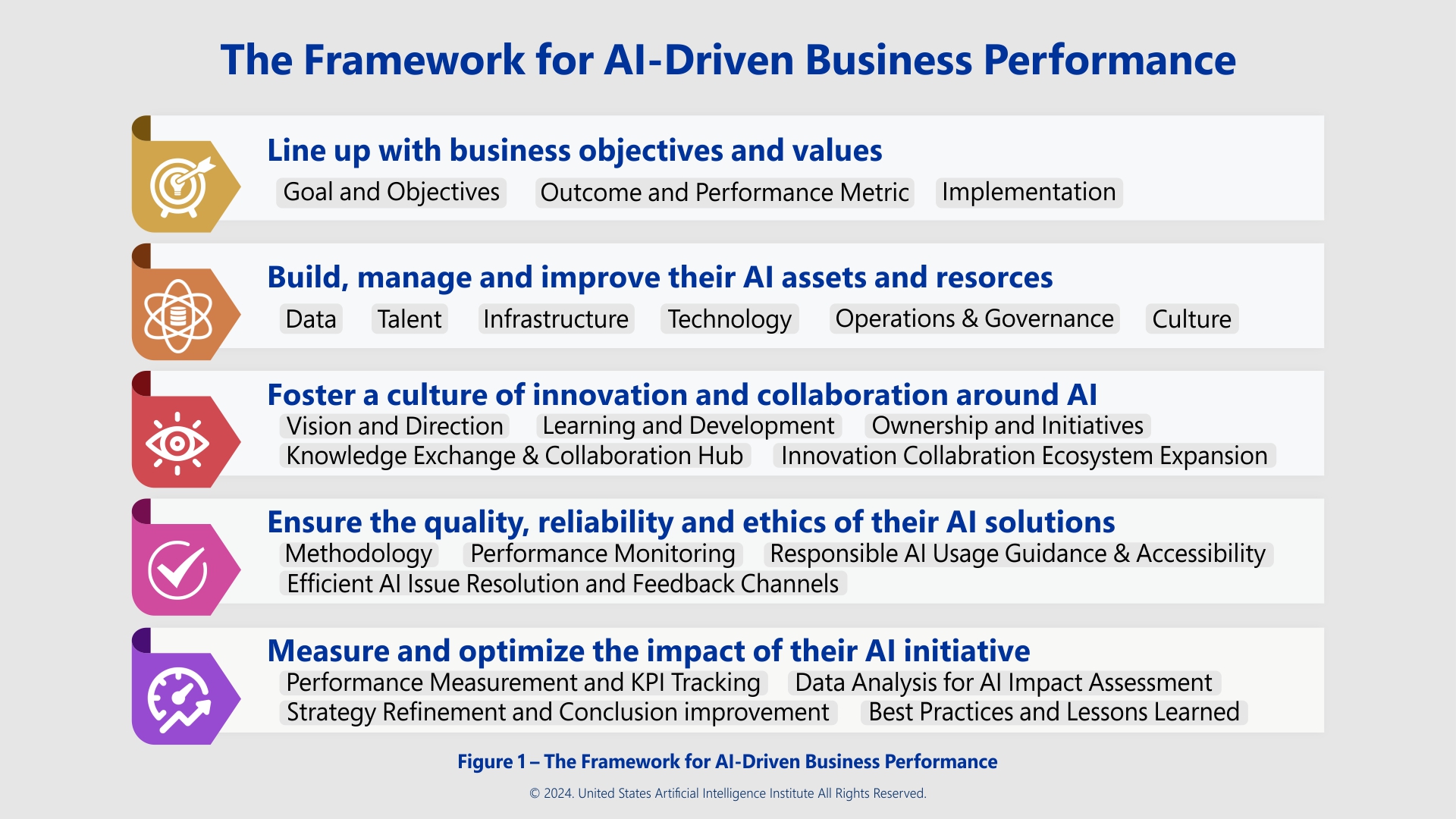
Artificial intelligence (AI) is currently believed to be a lift of the world economy. AI is also considered a solution for the massive recovery and growth of the country. The emergence of AI brings the development of various interesting, astonishing, valuable, and significant transformation innovations in multiple industries. The development of technology is quite phenomenal, especially with the boom of the appearance of the Generative AI era marked by the emergence of ChatGPT, gearing to enter a new era of utilizing massive technological innovation.
AI has the most substantial impact on the organization's operations, where AI refers to the ability of the simulation process and approximation of human intelligence carried out by machines. AI has transformed industries by bringing value in area automation decision-making processes, reducing human error, enhancing customer experience, supporting productivity improvements, and taking risky tasks efficiently.
Companies that do not or have not applied AI in their business activities are lagging in market competition or even walking towards extinction. This becomes a challenge and an opportunity for industry players to respond. They know that now AI can be said to be a necessity or a need to grow and compete. However, AI implementation is quite challenging and is a rapidly evolving field. Most company leaders still need guidance about where to start and whether there are any guidelines for them to start. A comprehensive AI transformation plan is required as a guideline in the organizational transformation journey to improve performance.
The application of AI in organizations requires more than just the adoption of new technologies. To maximize the potential of AI, organizations must also focus on new capacity development, robust data platforms, and cultural value. Therefore, factors will maximize the use of AI in the organization. In short, organizations must strengthen their competencies to get the best performance using AI. If we talk about how to empower organizations to improve business performance through AI, below is the framework for AI-Driven Business Performance:

The framework consists of the following components:
1. Line up the AI Strategy with the organization’s business objectives and values.
In the early stages, the organization must define clearly and rationally that in the process of implementing AI must support the vision, mission, goals, and values of the organization. It is clear here that organizations must have a complete understanding of what they need, and expectations, and if there are other concerns related to this AI implementation.
The AI strategy should answer questions such as:
Goal and Objectives:
Expected Outcomes and Performance Metrics:
Implementation:
2. Build, manage, and improve their AI assets and resources.
The next step is how the organization builds and manages the assets and resources that enable the development, deployment, and maintenance of AI solutions. These include:
3. Foster a Culture of Innovation and Collaboration around AI.
The next stage is for organizations to build a culture of innovation and collaboration related to AI. This process involves creating an environment that fosters, stimulates, motivates, and supports the process of exploration, experimentation, and adoption of new ideas, methods, approaches, technologies, and solutions that leverage AI. Organizations are expected to facilitate this process by improving the processes of communication, coordination, and collaboration across all parties involved.
Strengthening the culture of innovation and collaboration can be fostered in various ways, including:
4. Ensure the quality, reliability, and ethics of their AI solutions.
The next stage is the stage to ensure the quality, reliability, and ethics of the AI solution applied. The organization needs to ensure that the development, deployment, and utilization are valid, reliable, explainable, accountable, and responsible.
The achievement of this process can be done in ways, such as;
5. Measure and optimize the impact of their AI initiatives.
The final stage involves measuring and optimizing the impact of AI initiatives within organizations. This includes assessing and enhancing outcomes and benefits through the application of AI solutions across aspects, like efficiency, effectiveness, innovation, satisfaction, and sustainability. Achieving this involves processes:
Conclusion
AI is a tool that empowers enterprises to enhance their business performance. To fully realize its potential organizations, need to adopt a strategic approach that encompasses all aspects of deploying AI responsibly. This includes aligning their AI strategy with their business objectives and values effectively managing their AI assets and resources fostering a culture of innovation and collaboration around AI ensuring the quality, reliability, and ethical considerations of their AI solutions well as measuring and optimizing the impact of their AI initiatives.
Follow us: